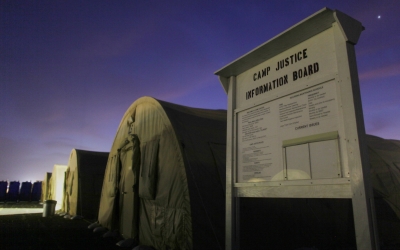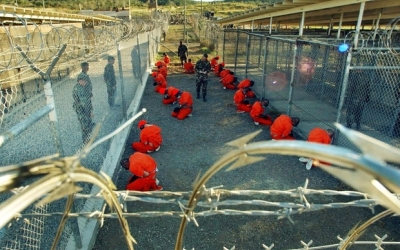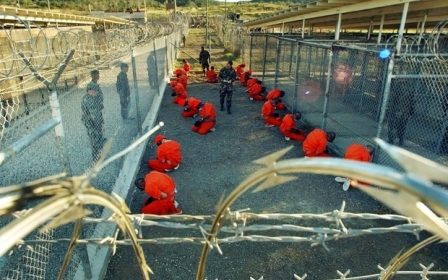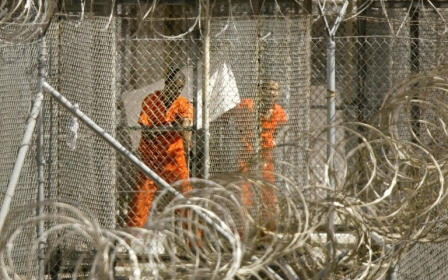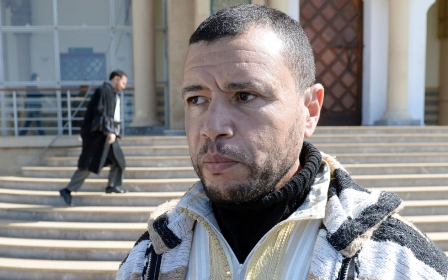Top US court declines to hear appeal of Yemeni Guantanamo prisoner

The US Supreme Court declined to hear the case of a Yemeni prisoner who has been held for 17 years without charge or trial at a US military prison in Guantanamo Bay, Cuba.
The court on Monday refused to take up a petition made on behalf of Moath al-Alwi, 42, who was arrested on the border between Afghanistan and Pakistan in December 2001 and transferred to Guantanamo the following January.
New MEE newsletter: Jerusalem Dispatch
Sign up to get the latest insights and analysis on Israel-Palestine, alongside Turkey Unpacked and other MEE newsletters
Al-Alwi is suspected of having been a bodyguard of al-Qaeda leader Osama bin Laden, an allegation he denies.
The Yemeni citizen is being held as an "enemy combatant", meaning that the US is able to hold him for the duration of the conflict in Afghanistan and the fight against al-Qaeda.
But al-Alwi's lawyers argue that unlike past conflicts, those wars are likely to continue indefinitely, creating "the risk of lifelong detention" for the prisoner.
The court turned down the petition without comment, but Justice Stephen Breyer warned that it is "past time to confront the difficult question" of whether Congress’s Authorization for Use of Military Force (AUMF) or the Constitution permit the practice of indefinite detention.
"Al-Alwi faces the real prospect that he will spend the rest of his life in detention based on his status as an enemy combatant a generation ago, even though today's conflict may differ substantially from the one Congress anticipated when it passed the AUMF," Breyer said in his dissent.
While the government accuses al-Alwi of working for the Taliban "until well after September 11, 2001”, his lawyer said there is "no evidence" that the Yemeni citizen ever used arms against the US or its coalition partners or that he had anything to do with 9/11.
Rights group Reprieve condemned al-Alwi's judicial limbo.
"In refusing to hear the case of a man held indefinitely at Guantanamo Bay, the US Supreme Court has shirked its responsibility to hold the Trump administration to account for its unconstitutional policies," Katie Taylor, the group's deputy director, said in a statement.
"The Senate has documented Guantanamo's torture history but the judiciary refuses to question the outrageous policy of never-ending detention without charge or trial."
It has been 10 years since former US President Barack Obama issued an executive order to close down the prison facility in Guantanamo, which was blocked by Congress.
In January 2018, Trump signed an order to keep the detention centre open and hinted, in his State of the Union address to Congress that year, that Islamic State (IS) group militants could be added to the prison population.
The last time a new prisoner arrived at Guantanamo base was in 2008 when the prison still held about 280 people. Today, 40 prisoners remain, only one of whom has been convicted of a crime.
Eight others are currently going through military court proceedings. Of those, five are alleged 9/11 plotters who have been charged in a joint death penalty case.
Middle East Eye delivers independent and unrivalled coverage and analysis of the Middle East, North Africa and beyond. To learn more about republishing this content and the associated fees, please fill out this form. More about MEE can be found here.


